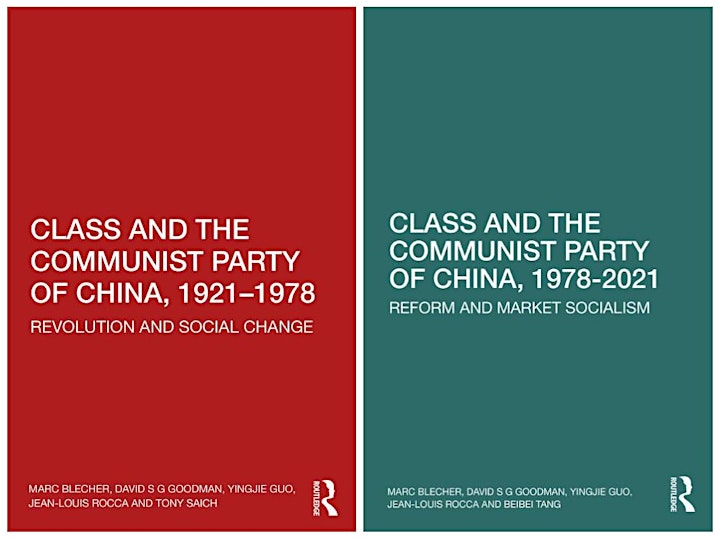Date: Tuesday 3 May 2022
Time: 5.00pm-6.00pm AEST
Location: Online event
Class in China – A series of webinars on the Peasants, the Middle Class and the Dominant Class
The Peasant Class under the Impact of Industrialisation, Urbanisation, and Household Registration
The role and status of Chinese peasants have changed significantly over time in the CCP’s meta-discourse of the Chinese Revolution as the latter has been re-articulated again and again. The class became the principal subject of the Chinese Revolution between 1927 and 1949, and its members were further elevated in the PRC’s status order and represented as ‘masters of the country’, together with the industrial workers, in official Party-state discourses from 1949 to 1978. Yet, they were at the same time subjected to the imperatives of the PRC’s socialist industrial development and treated as a reserve labour force which could be conveniently drawn into urban areas when necessary or sent back to the villages as the need for cheap labour decreased. This webinar charts that background and how it continues to determine the role for the peasantry since 1978, but unlike in the past, they have been turned into an object of capitalist urbanization. Moreover, their socio-political status has declined now that they are no longer a major part of the subject of the Revolution, which the CCP has abandoned except in rhetoric, re-orientating the PRC from socialism and communism towards economic development, combining socialist and capitalist modes of production. The most important direct source of impact on the peasantry in the past seven decades has been household registration (hukou), which, together with political and occupational criteria, has played a decisive role in making and unmaking classes by maintaining and removing the boundaries between rural and urban categories. Over the last seven decades, it is hukou which defines the peasants’ official class identity, while occupation and residence are of no more than secondary importance, as the class membership of the peasants who do not obtain urban hukou remains unchanged even if they move into other occupations or live in the cities for extended periods of time.
About the speakers:
Yingjie Guo is Professor of Chinese Studies at the University of Sydney. His research is related to nationalism in contemporary China and class discourses in the post-Mao era. His recent publications include Local Elites in Post-Mao China (2018) and Handbook of Class and Stratification in the People’s Republic of China (2016).
Kam Louie FHKAH FAHA (Chair) Before serving as Dean of Arts at Hong Kong University, Kam was Professor of Chinese at UQ and ANU. He has also taught at Nanjing, Auckland and Murdoch Universities. He has studied at USyd, CUHK and Peking University, and held professorial fellowships at the Center for Chinese Studies, Taipei and NTU, Singapore. He is currently Honorary Professor at HKU and UNSW. He served on government committees such as the Australia-China Council, and on leaderships roles such as President of the Hong Kong Academy of Humanities and Head of the Asian Studies Section at the Australian Humanities Academy.
Publications include Inheriting Tradition: Interpretations of the Classical Philosophers in Communist China (Oxford UP), The Literature of China in the Twentieth Century (co-authored), (Columbia UP) and Theorising Chinese Masculinity (Cambridge UP). He was also Chief Editor of Asian Studies Review (1998 – 2006).

Class and the Communist Party of China, 1921-1978: Revolution and Social Change
Class and the Communist Party of China, 1978-2021 : Reform and Market Socialism
20% Discount Available – enter the code FLR40 at checkout*
Hb: 978-1-032-18532-3 | £96.00
Pb: 978-1-032-18529-3 | £27.99
* Offer cannot be used in conjunction with any other offer or discount and only applies to books purchased directly via our website.
